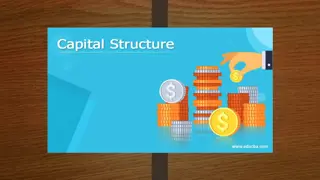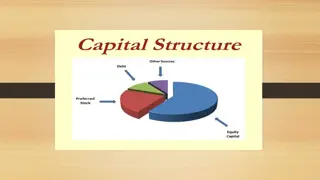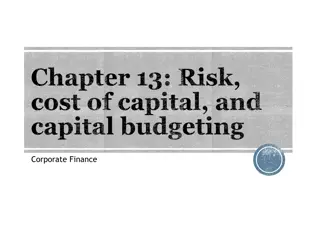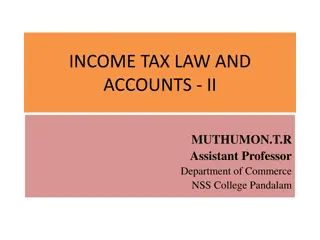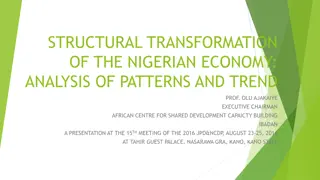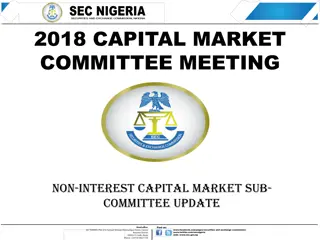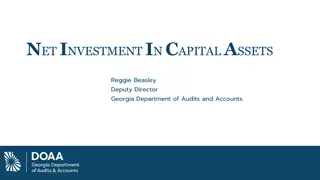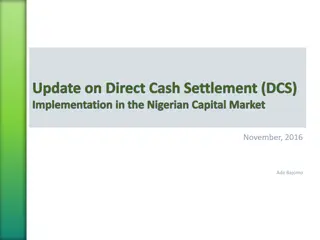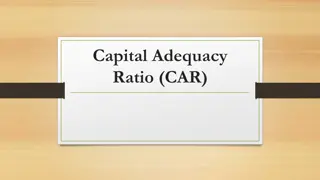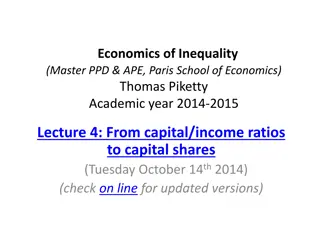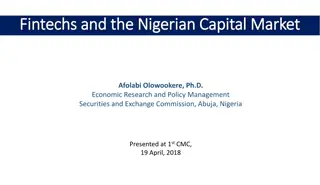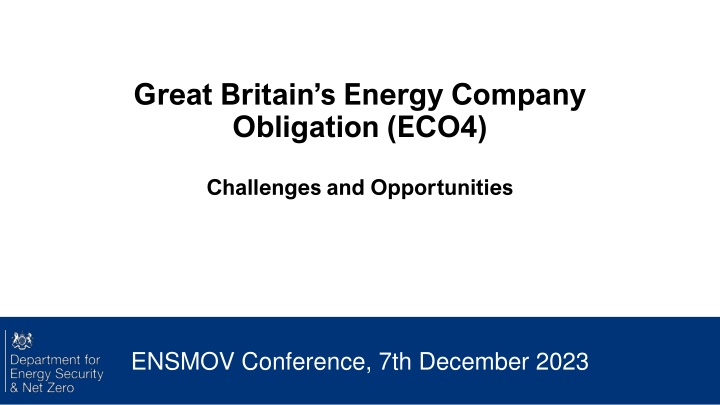
Nigerian Economy Overview and Capital Market Analysis
This document provides insights into the Nigerian economy and the capital market as of March 21, 2019. It covers global economic trends, domestic output, growth, prices, employment, external sector activities, oil market, and capital market activities. Additionally, it discusses the growth projections, sector performance, inflation rates, and employment trends in Nigeria.
Uploaded on | 1 Views
Download Presentation

Please find below an Image/Link to download the presentation.
The content on the website is provided AS IS for your information and personal use only. It may not be sold, licensed, or shared on other websites without obtaining consent from the author. If you encounter any issues during the download, it is possible that the publisher has removed the file from their server.
You are allowed to download the files provided on this website for personal or commercial use, subject to the condition that they are used lawfully. All files are the property of their respective owners.
The content on the website is provided AS IS for your information and personal use only. It may not be sold, licensed, or shared on other websites without obtaining consent from the author.
E N D
Presentation Transcript
Great Britains Energy Company Obligation (ECO4) Challenges and Opportunities ENSMOV Conference, 7th December 2023
ECO4 and delivery Saibh Finlayson
ECO4 design and objectives ECO has existed in GB since 2013. ECO4 is the fourth iteration of the scheme, running from April 2022 to March 2026. The scheme has changed significantly over time and taken different forms. ECO s current design is notable for: Whole-house retrofit Targeted at fuel poor households Sub-targets such as number of solid walls homes
ECO4 challenges Measures per home is higher than expected Costs are higher Local Authority (LA) Flex is underutilised
Spotlight on ECO4 opportunity Pay for Performance (PFP) is a mechanism that will allow for obligated suppliers to be rewarded for actual improvements delivered in retrofits rather than assumed benefits. Currently ECO scores energy suppliers based on the assumed increase in energy bill savings in treated households. Actual improvements to the energy efficiency of a home will be measured using Smart Meter Enabled Thermal Energy Rating (SMETER) results recorded pre and post retrofit. The SMETER approach uses smart meter data, external temperature data, and occasionally other data (eg in home temp sensors) to measure a home s heat transfer coefficient (HTC) pre and post retrofit to compare the difference. We will use these monitored HTC readings to inform scores given to ECO-obligated suppliers.
The Great British Insulation Scheme Ella Sivan
GB Insulation Scheme - objectives Reduce household energy bills (~ average savings of 300 - 400 per year) directly addressing the global energy crisis Ensure roll out of energy efficiency measures to a larger pool of households currently ineligible for support under existing government energy efficiency schemes Contribute to decarbonisation and fuel poverty targets while increasing energy security and resilience
GB Insulation Scheme - overview 1 billion over 3 years with annual targets Scheme legislation came into force on 25 July 2023 and will run to March 2026 It is estimated that the scheme will support over 300,000 homes Targets and Delivery Low-income households in line with ECO4 eligibility: at least 20% of obligation General eligibility: Council tax bands A-D in England, A-E in Scotland and Wales, with an EPC D and below Encourage Local Authority and supplier flex referrals and GOV.UK self-referrals Eligibility Higher cost measures likely to need a contributions Single insulation measures only with secondary heating control for low-income Cavity wall insulation generally most cost effective in modelling Measures
GB Insulation Scheme - challenges Movement of the supply chain Cost of compliance Administratively burdensome

